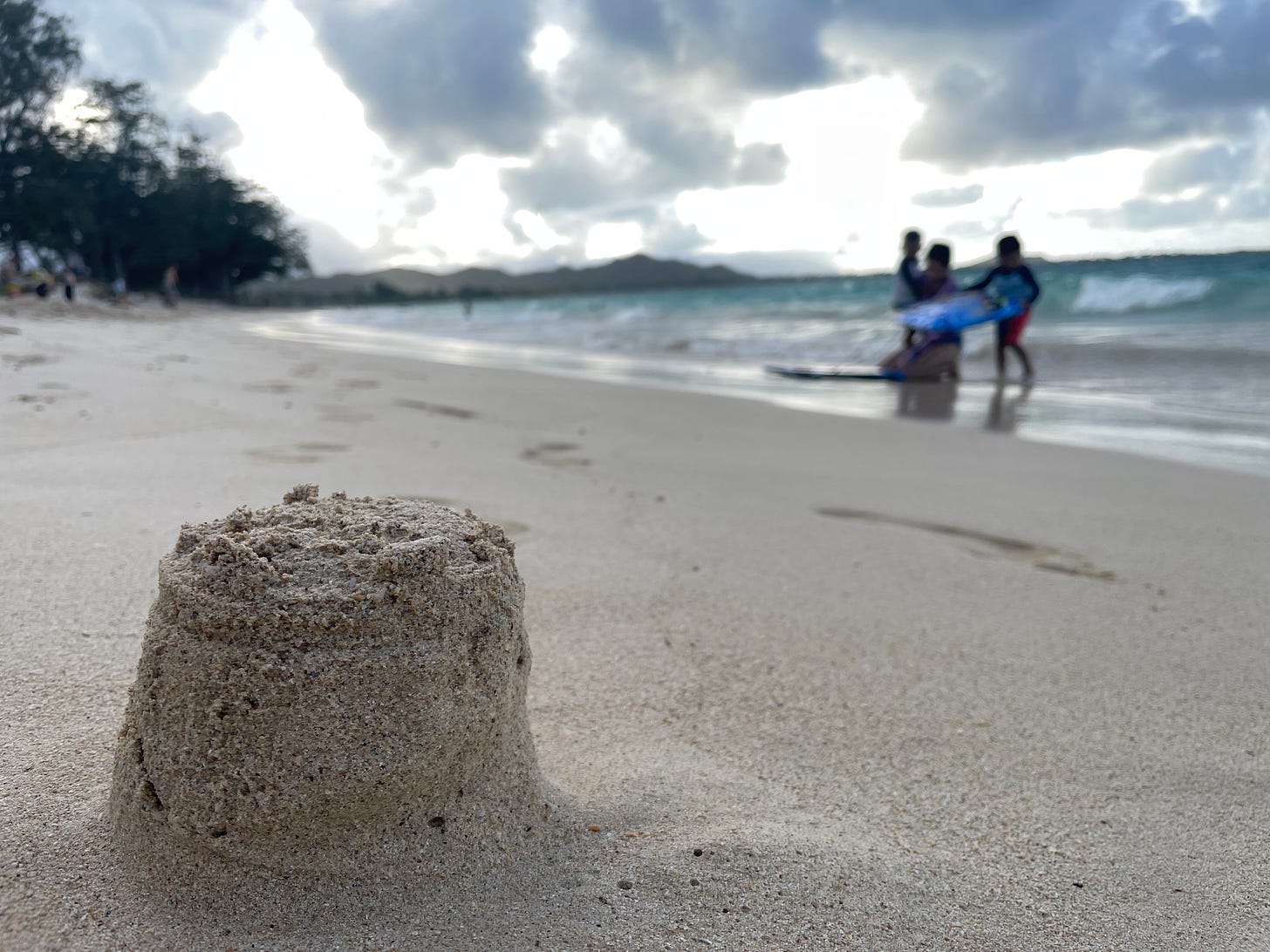“To different minds, the same world is a hell and a heaven.”
— Ralph Waldo Emerson
According to the internet, when your baby turns two, it’s a bloody nightmare. Everyone has heard of the terrible twos. It’s embedded in the parenting lexicon.
I’ll admit when my eldest Son turned two in 2022, I was a bit trepidatious. Unawares, it was like a switch flipped — overnight his personality and mannerisms changed.
Physically, he began taking calculated risks while pushing his boundaries, becoming highly adept and comfortable with his surroundings. It was like watching Neo after he downloaded the Kung Fu program. All of a sudden he could do it all. Climb. Jump. Run. Hang. Somersault off the couch. It was evolution in an instant. Truly awesome.
Emotionally, not so pretty. Feelings would swing like a pendulum — sometimes like a wrecking ball. Mundane routines and activities became battlegrounds for growing egos. I’d catch myself (too often, I might add) in a fierce debate with a two-year-old. Eventually, I’d realize that in those situations, perhaps I was the one being difficult.
tan·trum
noun
an uncontrolled outburst of anger and frustration.
The Three Pillars: Play. Presence. Patience.
From my own experience, I can confidently say that the second year of your child’s life will have its ups and downs. You’ll face plenty of tantrums and meltdowns — I’ve seen my fair share, dealing with a 4-year-old and a 2-year-old. However, the good news is that with more reps, patterns begin to emerge.
Whenever my kids were on the verge of an emotional breakdown, I developed a framework and strategy that helped prevent most of the damage by focusing on three key factors: play, presence and patience. Let me explain.
Play — enter their world.
Toddlers play. That is their job. It’s how they fine-tune their brains while expanding their tiny worlds. Your job as their parent, aside from feeding them, sheltering them and making sure they don’t perish, is to occasionally play with them.
I get it. You’re tired and running on fumes. Taking care of kids while juggling your career and home responsibilities is difficult, and it’s impossible to muster up the energy and enthusiasm to be available 24/7. But play doesn’t have to be a chore. Rather, see play for what it is — a way to destress, stay vibrant and keep the spark of youth within you alive and well. After all, Ben Franklin said it best — we don’t stop playing because we grow old, we grow old because we stop playing.
One surefire way to mess up play is when parents try to tell their kids how to play. Instead, just show them; pick up the ball yourself and put up shots on the Little Tikes net, or build a tower with the magnetic blocks. Play around them, they’ll follow suit.
Regardless of your choice, just remember one thing. Throughout the day, there will be countless opportunities for you to engage your child in a playful manner. Even if it’s for a few minutes, make the time now. Because before you know it, you’ll blink and this precious stage will be over.
Presence — turn off the screen.
Toddlers crave your attention. So give it to them. Don’t forget, you are the centre of their world. From the moment a child is born, they need you to survive. Take the advice from Thich Nhat Hanh when he said “The most precious gift we can offer anyone is our attention. When mindfulness embraces those we love, they will bloom like flowers.”
As technology advances at lightspeed, it feels like we’re headed towards a dystopian reality where our kids have to compete for our attention against the algorithm.
What’s even worse is when we introduce our toddlers to these WMDs, weapons of mass distraction. Now, in my opinion, if they’re just for Facetiming the Grandparents, that’s no big deal. But, when we begin to use our phones or iPads as digital pacifiers, we’re playing with fire.
My solution: put away the device when you’re around the kids. Now I’m nowhere near perfect, but I try my best to stow my phone with the keys or some place out of sight. Your inbox, fantasy football lineup, or whatever it is that’s sucking away your attention can wait.
Patience — slow down.
It’s important to understand at the peculiar age of two, your child is developing the early stages of their personality while discovering and experiencing the full range of human emotions. At this critical juncture, their language and communication skills begin to flourish as they evolve into self-regulating, autonomous, tiny human beings.
Your job is quite simple — help them develop their language and ability to communicate their needs, and then try to attend to those needs. At times, toddlers throw a tantrum because they are unable to communicate their needs in the moment.
The child is doing their best to “act out” their emotions. If you’ve ever played charades, you know how frustrating it can be to get your point across without speaking. As a competitive board gamer, I’ve thrown plenty of fits when things don’t go my way, so I can understand the frustration of my toddler when they do the same.
In those times when all hell breaks loose, and you’re deep in the nuclear waste of a full-blown meltdown, the only thing that’s left to do is acceptance. Patience is the only card you have left to play, and if you play it right, the misery will be over sooner rather than later.
I learned this lesson the hard way, fortunately, my wife is the master of this technique. Now, whenever I find myself in a situation where a tantrum or blowout is inevitable, the best thing to do is to let it happen. I sit with my child, be present, hold my tongue, comfort them, and we ride out the storm together. Patience is the key.
Bottom Line
Please don’t take this as a “prescription” for parenting or “advice.” I’m just sharing what’s been working for me so far. Take it however you like, but regardless of how you handle the ups and downs of toddlerhood, just remember one thing. Attitude and perspective are everything. With the right focus and approach, you might discover for yourself just how terrific this stage of your child’s life can be. In the end, hindsight is always 20/20, and when you’re in the thick of things, it’s best to enjoy every moment.
Good luck. Thanks for reading.
Much love.
SG
"Do not ask your children to strive for extraordinary lives. Such striving may seem admirable, but it is the way of foolishness.
Help them instead to find the wonder and the marvel of an ordinary life.
Show them the joy of tasting tomatoes, apples and pears.
Show them how to cry when pets and people die.
Show them the infinite pleasure in the touch of a hand.
And make the ordinary come alive for them.
The extraordinary will take care of itself."
— Author, William Martin | The Parent’s Tao Te Ching
“PediatRx” is written by Dr. Shawn Gill, PharmD - a pharmacist and Father of two boys. During the day he works as a clinical pharmacist in family medicine and pediatrics, with a focus on deprescribing and helping his patients reduce their medication needs. At night, he writes this Substack. “PediatRx” is a collection of personal anecdotes and contemplative musings, crafted into a practical “prescription” for parents. The goal is to share insights, foster hope, and inspire fellow parents to raise and nurture resilient children, in the modern world. To support this effort, subscribe below. Many thanks. SG







